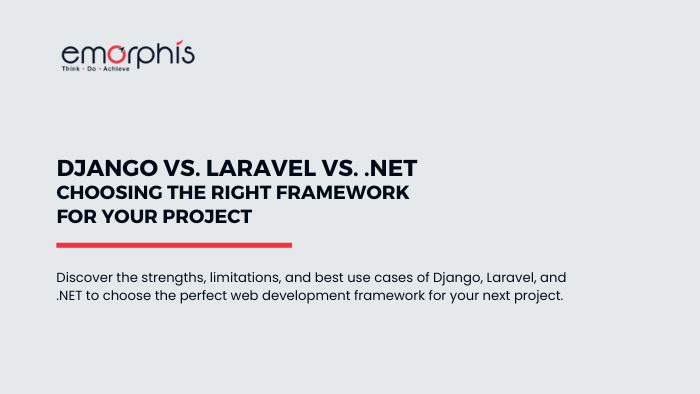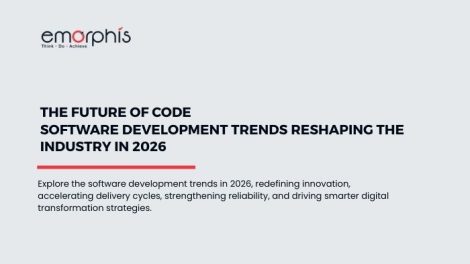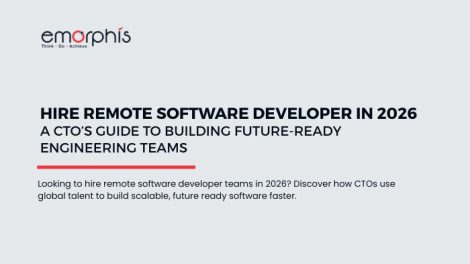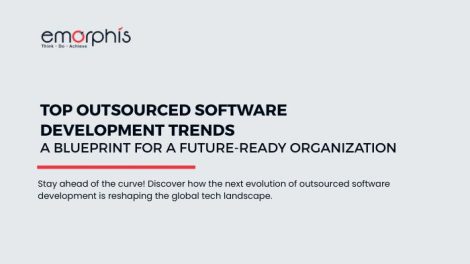Overview
In today’s rapidly evolving technology landscape, selecting the right web development framework is crucial for a project’s success, the battle of Django vs Laravel vs .NET often dominates discussions among developers and businesses, each framework bringing unique capabilities to the table. But how do you determine which one suits your project best?

In this article, we’ll dive deep into the strengths, weaknesses, and ideal use cases for Django, Laravel, and .NET.
Understanding the Players
Django
Django is a Python-based web framework that follows the “batteries-included” philosophy. Known for its scalability, security, and rapid development capabilities, Django is widely used in data-heavy applications like machine learning platforms, CRMs, and enterprise systems.
Laravel
Laravel is a PHP-based framework renowned for its elegant syntax and developer-friendly features. It simplifies building robust web applications with tools like authentication, routing, and caching baked in. Laravel is a favorite for small to mid-sized applications that require flexibility and customization.
.NET
The .NET framework, powered by Microsoft, is a robust and versatile option for building enterprise-grade applications. Whether it’s web, desktop, or mobile, .NET shines in delivering secure, high-performance solutions across industries like healthcare, finance, and e-commerce.
Django vs Laravel vs .NET – Feature Comparison
| Feature | Django | Laravel | .NET |
| Language | Python | PHP | C# / F# |
| Learning Curve | Easy for Python users | Beginner-friendly for PHP users | Moderate, requires C# expertise |
| Scalability | Highly scalable | Best for small-to-mid projects | Excellent for enterprise-scale apps |
| Cross-Platform | Limited | Limited | Fully cross-platform (.NET Core) |
| Community Support | Large and growing Python base | Strong PHP developer base | Backed by Microsoft’s ecosystem |
| Performance | High for data-heavy apps | Good for moderate use cases | Exceptional for complex workflows |
| Security | Built-in features for high security | Strong security tools | Enterprise-grade security options |

Use Cases for Django vs Laravel vs .NET
When to Choose Django?
- Enterprise Applications: Django is ideal for CRM or ERP systems where scalability and security are paramount.
- AI-Powered Platforms: Python’s AI/ML libraries make Django a natural fit for intelligent web applications.
- E-commerce Solutions: With its rapid development capabilities, Django accelerates time-to-market for online stores.
When to Choose Laravel?
- Custom Web Applications: Laravel shines in projects that require extensive customization and a quick development cycle.
- Content Management Systems (CMS): Laravel’s user-friendly syntax simplifies CMS development.
- Startups: Laravel offers cost-effective solutions for startups needing robust web applications.
When to Choose .NET?
- Enterprise Solutions: Perfect for building large-scale, secure systems for finance, healthcare, and government.
- Cross-Platform Applications: With .NET Core, you can build for web, desktop, and mobile simultaneously.
- High-Performance Projects: From real-time trading platforms to scalable APIs, .NET delivers unparalleled performance.
Strengths and Weaknesses – Django vs Laravel vs .NET
Django Strengths
- Built-in security features like SQL injection prevention and CSRF protection.
- Scalability suited for enterprise-level projects.
- Python’s dominance in AI and machine learning enhances its utility.
Laravel Strengths
- Simple learning curve with elegant, developer-friendly syntax.
- A rich ecosystem with tools like Laravel Forge and Nova for deployment and admin management.
- Ideal for small to mid-scale applications needing flexibility.
.NET Strengths
- Full-stack capabilities for web, desktop, and mobile development.
- Enterprise-grade security and performance optimization.
- Extensive Microsoft support and ecosystem integration.
Framework Ecosystems – Tools That Empower Developers
When comparing Django vs Laravel vs .NET, it’s essential to consider each framework’s ecosystem. A robust ecosystem can significantly boost productivity and streamline development.
Django is known for its “batteries-included” philosophy, providing a wealth of built-in tools for web development. The Django REST Framework (DRF) enables developers to easily build APIs, while Python’s compatibility with data science and machine learning libraries like TensorFlow and Scikit-learn positions Django as an excellent choice for AI-driven applications.
On the other hand, Laravel offers a highly developer-friendly ecosystem with tools like Laravel Forge for deployment, Laravel Nova for admin panels, and a vast collection of community-driven packages. Laravel’s ecosystem is built for rapid development and flexibility, which is why it’s the framework of choice for many startups and small businesses.
Click the link to check the details of Laravel Web Development Services for your project.
.NET benefits from Microsoft’s extensive ecosystem, especially in cloud computing and enterprise-level solutions. With integration into Azure, .NET enables seamless cloud deployments and management, making it ideal for large organizations. Additionally, Visual Studio provides a powerful IDE for .NET development, while Blazor enables developers to create interactive web applications using C# instead of JavaScript.

Community and Support – A Developer’s Lifeline
The strength of a framework’s community can make or break your development process. Whether you’re troubleshooting or looking for new tools, community support plays a key role in developer success.
Django has a massive, vibrant community fueled by the popularity of Python. With excellent documentation, active forums, and rich resources on GitHub, Django developers have access to everything they need to succeed. It’s especially well-supported by Python enthusiasts who use Django in fields like data science, AI, and machine learning.
Find the Django Community here.
Laravel also has a robust community, particularly for PHP developers. Laracasts is a top-tier resource for learning Laravel, providing comprehensive tutorials for developers at all levels. The Laravel community is particularly strong in web development for startups and small businesses, offering tons of useful packages and solutions.
Find the Laravel Community here.
.NET enjoys strong backing from Microsoft, with official documentation, enterprise-level support, and a vast developer network. Microsoft’s ecosystem provides unparalleled support for .NET, making it the go-to framework for enterprises and large organizations looking for secure and scalable web solutions.
Find the .net community here.
Challenges or Limitations – What to Watch Out For
Each of the frameworks has its own challenges and limitations, which developers need to consider when choosing between Django vs Laravel vs .NET.
Django is an excellent framework, but it may be overkill for smaller projects. Its reliance on Python can also present a learning curve for teams not already familiar with the language. Additionally, Django’s focus on larger applications might be too heavy for simple websites or applications.
Laravel is incredibly beginner-friendly, but PHP’s performance issues in large-scale applications may present scalability concerns. While Laravel is great for small and medium-sized projects, PHP can struggle when pushed to its limits.
.NET is a powerhouse for large-scale applications but comes with its own set of challenges. The licensing costs of certain .NET tools may be a barrier for smaller organizations. Moreover, while .NET Core is cross-platform, legacy .NET applications may still rely on Windows-based infrastructure, limiting portability.
Performance Benchmarks – Which Framework is the Fastest?
Performance is a major deciding factor when it comes to choosing between Django vs Laravel vs .NET. In high-load scenarios, performance can directly impact user experience and system efficiency.
Django performs well in data-heavy applications, and Python’s speed makes it suitable for machine learning and scientific computing. However, it’s not as fast as .NET when handling large-scale enterprise applications. For smaller to medium applications, Django holds its own.
Check details about Django web development services for your web project.
Laravel, being PHP-based, lags slightly in performance when compared to Django and .NET. However, for small to medium projects, Laravel offers a good balance of speed and flexibility. When it comes to raw performance, Laravel’s performance can suffer under extreme load, but it remains an excellent choice for rapid application development.
.NET is a performance leader in enterprise environments. ASP.NET Core has been optimized for speed and handles millions of requests per second. If performance and scalability are your primary concerns, .NET is the framework to choose for applications that demand the utmost efficiency.
Emerging Trends and Ecosystem Tools – The Future of Web Development
As web development evolves, Django vs Laravel vs .NET must adapt to new trends in technology, such as serverless architectures, microservices, cloud-native development, and AI-driven applications.
Serverless architectures are gaining traction, with each of the frameworks adapting to this change. Django supports serverless deployments through cloud platforms like AWS Lambda. Laravel is catching up with Laravel Vapor, which allows serverless deployment on AWS. .NET also excels in serverless computing, with Azure Functions offering a scalable, cost-effective solution for enterprise applications.
Find details for .Net Development Services for your project.
Microservices architecture is becoming more common, especially for large-scale applications. While .NET has strong support for microservices, particularly through Docker and Kubernetes, Django and Laravel are also evolving to support this architecture, making them suitable for modern, scalable applications.
Cloud-native development is another area where these frameworks are excelling. Django, Laravel, and .NET each offer integration with leading cloud platforms like AWS, Azure, and Google Cloud, providing developers with tools to build and deploy scalable applications seamlessly.
Moreover, with AI and machine learning continuing to influence software development, Django takes the lead due to Python’s dominance in these fields. .NET is also expanding its capabilities in AI and machine learning, especially within the enterprise sector, while Laravel provides flexibility for rapid development, even though it’s not as heavily integrated with AI as Django.

Who Wins the Battle? Django vs Laravel vs .NET
The answer depends entirely on your project needs:
- Choose Django if you’re building a data-driven, AI-integrated, or enterprise-grade application.
- Choose Laravel if you prioritize quick development for small-to-medium projects with custom features.
- Dot NET is the choice if you need an enterprise-scale, secure, and cross-platform solution.
Real World Examples
Here are some real-world examples of applications and companies that have used Django, Laravel, and .NET to develop their platforms:
Django
- Instagram: Instagram, one of the most popular social media platforms globally, uses Django to handle millions of users and a massive number of daily interactions. Django’s scalability, security features, and rapid development capabilities make it an ideal choice for Instagram’s data-driven platform.
- Spotify: The music streaming giant Spotify relies on Django for backend services. It takes advantage of Django’s ability to handle large amounts of data, deliver high performance, and provide fast response times.
- Pinterest: Pinterest, a popular image-sharing and social media platform, uses Django to handle its massive database of images, users, and activities. Django’s flexibility and scalability make it a strong choice for high-demand applications like Pinterest.
- Disqus: Disqus, a widely-used comment platform, was originally built using Django. It is a great example of Django’s ability to handle large-scale user interactions while remaining fast and efficient.
- NASA: Even organizations like NASA use Django to build web applications requiring high security and scalability. NASA has leveraged Django for its public-facing websites as well as internal systems.
Laravel
- Startups.com: Startups.com is a platform for entrepreneurs, investors, and small businesses. It uses Laravel for its flexibility, ease of use, and quick development cycle. Laravel’s modular approach and elegant syntax make it an ideal choice for a fast-growing startup ecosystem.
- Alison: Alison, a popular online learning platform, uses Laravel to deliver courses, track user progress, and manage a global community of learners. Laravel’s rapid development capabilities helped Alison scale quickly while providing a seamless user experience.
- World Walking: World Walking, a unique fitness app that encourages walking through virtual walks across different cities, uses Laravel to power its platform. It benefits from Laravel’s robustness, scalability, and ease of use.
- Laracasts: Laracasts, a widely-known platform for Laravel tutorials, uses its own framework. This self-usage demonstrates how well Laravel fits the needs of a fast, scalable educational platform.
- Twitch: Twitch, the live streaming platform for gamers, has utilized Laravel in the past for building its backend services, including APIs for interactions and viewer statistics.
.NET
- Stack Overflow: Stack Overflow, the largest online community for developers, uses .NET to manage its vast array of content, interactions, and discussions. .NET’s ability to handle millions of users and vast amounts of data makes it a strong foundation for large-scale platforms.
- Microsoft: Microsoft uses .NET extensively across its products, including Office 365, SharePoint, and Microsoft Teams. These enterprise-level applications are a perfect fit for the .NET ecosystem, offering robust functionality and secure, scalable infrastructure.
- GoDaddy: GoDaddy, a leader in web hosting and domain registration, relies on .NET for building its customer-facing platforms. .NET’s enterprise features and security aspects are well-suited for high-demand services like GoDaddy’s hosting services.
- Intuit: Intuit, the maker of popular financial tools like TurboTax and QuickBooks, uses .NET for building reliable, secure applications for small businesses and individuals. The performance and scalability offered by .NET make it ideal for the large-scale processing of financial data.
- Samsung: Samsung uses .NET for many of its enterprise-level applications, particularly in managing logistics, production, and internal operations across its global network of manufacturing plants.
From social media platforms like Instagram and Pinterest to e-commerce and financial services like GoDaddy and Intuit, the Django, Laravel, and .NET frameworks are trusted by some of the biggest and most successful companies in the world. Whether you are building a startup, an enterprise-level application, or a global platform, each of these frameworks provides the necessary tools, scalability, and security to create high-quality applications.
Further, find the software engineering trends of 2025 shaping the technology landscape.

Conclusion – Django vs Laravel vs .NET in Perspective
The debate of Django vs Laravel vs .NET highlights the importance of aligning technology choices with project goals. Whether it’s Django’s scalability, Laravel’s simplicity, or .NET’s enterprise-grade performance, each framework brings unique strengths to the table. Collaborate with experienced developers who can guide you in making the best decision for your business needs.
Still wondering which framework is right for your next project? Let us help you evaluate your options and build the perfect solution!







